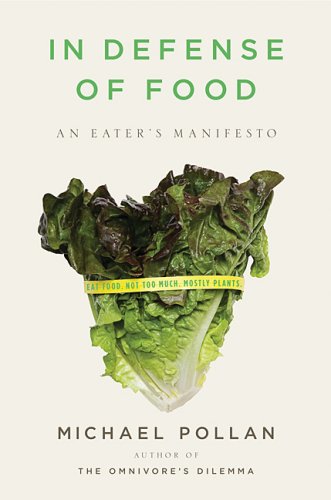
Humans have evolved in ecological balance with their surrounding environments, over the course of many centuries building sustainable systems of food procurement and consumption which depend on stewardship of their sources – sea, soil, rivers, trees, animals – to perpetuate their existence. General human stupidity and greed have periodically breached these rules and exploited resources beyond their capacity to sustain themselves, but for the most part, this is how human populations have managed to thrive, and how cultures have developed specific cuisines delicately balanced between seasonal gluts and shortages. The postwar industrial food system has induced a dramatic change to this centuries-old system, circumventing natural cycles in pursuit of year-round standardisation and global market penetration. As Cambridge anthropologist Jack Goody argues. This has been achieved primarily through innovations in canning and bottling techniques, artificial freezing (as well as the mechanisation of these processes), expanded transport networks and vehicle technologies, and the growth of branded retailing. To this list Pollan would add the adulteration of food with additives, as well as advances in grain refining technology. And on top of that, I would follow Carlo Petrini in mentioning genetic modification as the most naked example of nature and ecology being reconfigured in conformity with profit objectives.
Concurrent with the industrialisation of the food supply has been the increased scientific-ation of food, vividly illustrated in Eric Schlosser's Fast Food Nation. Pollan argues that anxieties about food and diet, initiated largely by those with a vested financial interest in worrying the public about both produce and production techniques that have served humanity well for tens of thousands of years, reaches its logical conclusion in the growth of nutritionism, the diet industry and spread of imitation food products. More directly, these are the adulterated, substitute-laden, low-fat, low-cholesterol, so-called 'healthy' options that have gradually replaced real foods on our supermarket shelves. Pollan characterises nutritionism as a reductionist pseudo-science, an ideology prone to internal inconsistency, food industry infiltration and a willful neglect of factors related to food beyond their constituent parts. The reductionist approach looks exclusively at the purported impact of nutrients – and their apparent converse, toxins – on the body without an adequate methodology for ensuring accurate monitoring, long-term evaluation or socio-cultural influences on consumption.
The real sting is that nutritionism, industrial food and the low-fat crusade have abjectly failed to make their target market any healthier. Americans generally have shorter life spans and more chronic illnesses (cancer, heart disease, diabetes) than other industrialised nations, the exceptions being populations which eat the most Americanised diets (e.g., processed, pre-packaged foods, lots of refined flours and sugars, heavy on substitutes and preservatives, light on fresh fruits and vegetables). It's no mystery as to why previously rare conditions such as chronic obesity and diabetes are on the rise in precisely the segment of the Japanese population most disposed to a Westernised diet. A regularly demonstrated health gap also exists between 'assimilated' Aborigines in urban
Pollan also echoes Carlo Petrini in describing this standardisation of the food supply as a gastronomic disaster, a pointless and destructive sacrifice of food quality on the altar of misguided 'advancement'. As culturally conservative as this sounds, it's a view bolstered by sound scientific and anthropological evidence. Relinquish your food traditions and watch your public health, social cohesion and rural economic base go with it. It sounds like an alarmist statement, but it holds up well to academic scrutiny. And it truly is alarming.
I agree with Pollan's thesis. His epidemiological approach is convincing, and there's very little evidence coming from the opposing camp which would persuade me otherwise. What lets me down slightly is that Pollan's book is almost de-politicised. His points are well-supported and fair, but in his efforts to avoid coming across like an ideologue, they lose some of their bite. Understanding the above arguments puts into perspective other issues that may initially seem distantly related. The decimation of subsistence or community agriculture in

I'm sure Pollan knows all this, and could probably teach me a good few things. While I accept that the relationship between health and edible ecologies was the main focus of In Defense..., I don't think these issues are so neatly divisible from the more explicitly political arguments attempted by authors like Colin Tudge and Carlo Petrini. Indeed, refer again to the debate between Petrini, Matthew Fort and
Organisations like Slow Food have developed a large apparatus for dealing with the question of how to counter the prevailing trends. The people I'm studying as part of my PhD project are trying to demonstrate solutions to the problem as well, in their varied and unique ways. Pollan's book, in my view, just isn't quite comprehensive nor radical enough. His final section, while being absolutely loaded with reasonable advice, articulates solutions almost exclusively from a consumer perspective. Tudge and Petrini, on the other hand, attempt to conceive of far-reaching networks, inclusive of growers, chefs, retailers, writers and others, all of whom are necessarily consumers themselves. To quote Gianluca Brunori from the University of Pisa:
'To be well functioning, the [alternative agro-food] network should encompass farmers, consumers, retailers, input officers, extension services, researchers, farmers' organisations, certification bodies, public officers, consumers' and environmental movements.'
This may be unfair to Pollan, but it almost seems as if the differences in strategy are reducible to cultural tendencies in the US and Europe: one is individualistic and largely centred on consumption, while the other suggests experiments in community-building and collective enterprise. They might be overambitious and even utopian, but it's in the latter that I find the most hope for getting out of this mess.

No comments:
Post a Comment